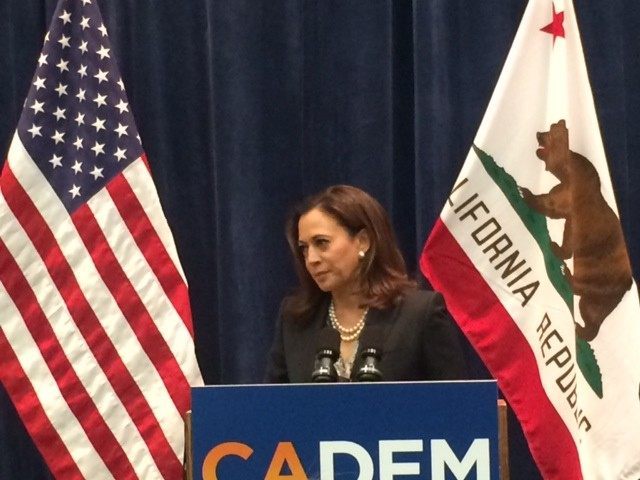Sacramento Bee columnist Dan Walters writes that California Attorney General Kamala Harris is flouting the will of the voters who passed Proposition 209, part of the state Constitution, which barred the state from discriminating against, or granting preferential treatment to, any individual or group on the basis of race, sex, color, ethnicity, or national origin in the operation of public employment, public education, or public contracting.
Despite her oath to “support and defend … the Constitution of the State of California against all enemies, foreign and domestic,” Harris has issued a brief to the U.S. Supreme Court, urging it to “allow public universities to consider race as one factor among many in admissions decisions.” She also stated in the brief, “Diversity is essential to creating not only the perception, but also the reality, of a just and open society.”
Harris has argued, “To prepare our future leaders to thrive in the global workforce, we must embrace the benefits of diversity. I strongly urge the U.S. Supreme Court to reaffirm its decision that public colleges and universities may consider race as one factor in admissions decisions,” according to The Sacramento Bee.
Walters points out that in the brief, Harris attacks Proposition 209, writing:
Because of Proposition 209, this state’s public institutions of higher education cannot avail themselves of the constitutionally permissible race-conscious admissions options approved in this court’s ruling in Grutter v. Bollinger. … As a consequence, the University of California has struggled to attain a level of racial diversity on its campuses that will achieve the educational benefits of a diverse student body.
Walters notes that Harris continues:
California’s decision to forgo the consideration of race in attempting to achieve optimal student body diversity is, of course, a policy choice that California voters are entitled to make. However, Proposition 209 constitutes merely a choice about how to achieve diversity and does not reflect a lessening of California’s commitment to student body diversity as an essential component of a comprehensive collegiate education.
Walters concludes:
Whether affirmative action is a societal benefit or a mistaken notion is a debate worth having. And the way to have it would be for its advocates to sponsor a ballot measure to repeal Proposition 209. As long as it remains in the state’s Constitution, however, it’s rather arrogant for Harris, the leading candidate for U.S. Senate next year, to assert that her personal attitude represents the state as a whole.
Harris is no stranger at playing power politics; in 2012, she refused to defend California’s Proposition 8, which banned same-sex marriage and was passed by the people, after a judge struck the proposition down. Earlier this year, she colored the title and summary of an amendment to the state Constitution that would legislate pension reform.

COMMENTS
Please let us know if you're having issues with commenting.